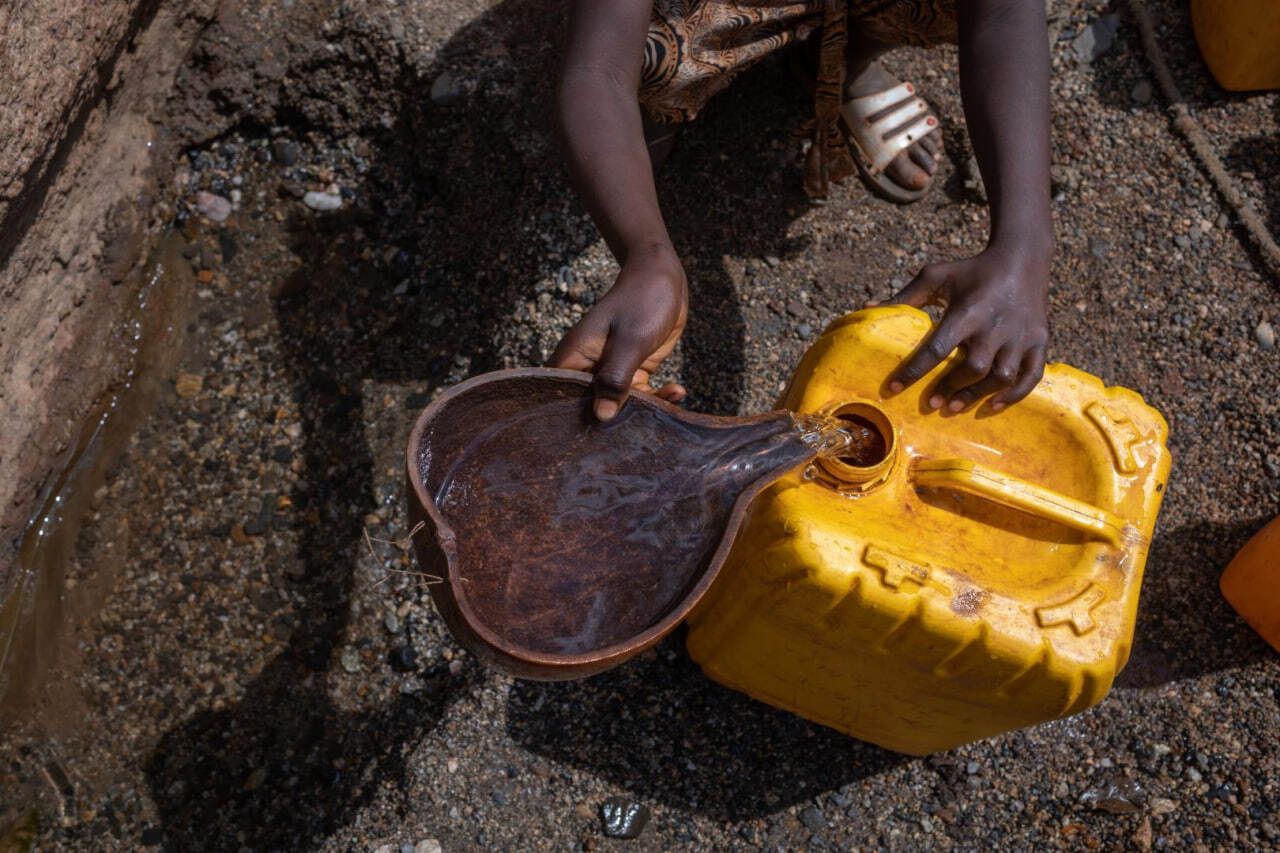
Top Stories of the Week
Russia, Ethiopia Sign Document Calling for Construction of Nuclear Plant
Consolidation of University Courses Marks Next Phase of Ethiopia’s Education
Cholera Outbreak Kills Gold Miners in Tigray, Spreads to Six Woredas
Reform Ethiopia’s TVET and AI Institutes Partner to Launch First AI and Robotics Degree
Better Auth Takes Over Maintenance of Auth.js, the Web’s Go-To Authentication Library

For the past 5 years, Shega has worked to provide clear, contextual coverage of Ethiopia’s innovation economy. As the market has evolved, so have the needs of the people shaping it.
Decision-makers need more context, better data, and tools built for the complexity of Ethiopia’s market.
That’s why we’ve evolved. We’re entering a new chapter focused on delivering exactly that. Behind the scenes, we’ve been building something that goes further: a new way to help investors, founders, financial decision makers, program designers, market analysts, and policy advisors navigate what’s next.
Be the first to experience what’s coming next!
Russia, Ethiopia Sign Document Calling for Construction of Nuclear Plant
Russia and Ethiopia signed a document on Thursday calling for the planning and construction of a nuclear power plant in the east African country, RIA news agency quoted Rosatom, the state-owned Russian nuclear corporation, as saying.
An action plan on development and construction of the facility was signed during a nuclear power forum by the general director of Rosatom, Aleksei Likhachev, and Ashebir Balcha, CEO of the Ethiopian Electric Company, RIA said. Read more.

Advertisement
ጥፍጥ ያለ ምግብ ጥፍጥ ያለ ሲሳይ ይዞ ይመጣ ይሆናል ባለ2 መኝታ አፓርታማ፥ 50 ሺህ ብር፥ ላፕቶፕ እንዲሁም ሞባይል የእናንተ ሊሆን ይችላል።
በአቢሲንያ ተገበያዩ - ተሸለሙ!
Licenses of Ten Auditors at Risk After Alleged Tax Irregularities
The Addis Abeba Revenue Bureau has asked the Accounting & Auditing Board of Ethiopia to revoke the licenses of ten accountants and auditors accused of preparing flawed taxpayer records during the 2024/2025 fiscal year. Officials say a preliminary audit uncovered irregularities that may have cost the government revenue. Read more.
Consolidation of University Courses Marks Next Phase of Ethiopia’s Education Reform

After three decades of program expansion across Ethiopian universities, the Ministry of Education is now moving in the opposite direction. It is merging 147 university programs into 54, citing bloated costs and weak links to the labor market.
Employers have long flagged inconsistencies between degree titles and job requirements. Students too have struggled with narrow specializations. Universities will conduct self-assessments to determine which courses have a 67% similarity rate in their content and decide on consolidation. Read more.
Ethiopian Startup Looks to Solve Doom Scrolling with Locally Made Puzzles
For generations, puzzles sharpened children’s problem-solving skills. In Ethiopia, that tradition is getting a local revival as screens increasingly crowd out other toys. Gebeta Puzzles, founded by a recent industrial engineering graduate, creates puzzle sets inspired by Ethiopia’s history, culture, and landscapes. Read more.
Cholera Outbreak Kills Gold Miners in Tigray, Spreads to Six Woredas

A deadly cholera outbreak in the Tigray region has killed several gold miners, according to a new report from the European Commission’s emergency service.
The outbreak, which remains uncontrolled, has infected over 300 people across six districts, resulting in a Case Fatality Rate (CFR) of 3.1 percent, a figure that exceeds emergency thresholds.
The crisis, according to the report, highlights the particular vulnerability of mining communities to waterborne diseases, with a majority of the reported cases being men from these areas. Read more.
𝗠𝘂𝗹𝘁𝗶-𝗨𝘀𝗲𝗿 𝗗𝗶𝗴𝗶𝘁𝗮𝗹 𝗕𝗮𝗻𝗸𝗶𝗻𝗴 𝗳𝗼𝗿 𝗙𝗮𝗺𝗶𝗹𝗶𝗲𝘀

This latest use case report by Shega, as part of the AKOFADA (Advancing Knowledge on Financial Accessibility and DFS Adoption) initiative, examines how secure, role-based access to a single digital account can help Ethiopian households manage their shared finances.
What’s inside:
Identifies key gaps in Ethiopia’s DFS landscape, including exclusion of dependents in male-headed households.
Proposes a multi-user model with customizable permissions to improve transparency and reduce credential-sharing risks.
Highlights the potential to serve a wide range of households and beneficiaries of G2P programs.
Discusses regulatory needs: digital ID, role-based access, and consumer protection frameworks.
Ethiopia’s TVET and AI Institutes Partner to Launch First AI and Robotics Degree

The Federal Technical and Vocational Training Institute and the Ethiopian Artificial Intelligence Institute have signed a partnership agreement to launch first-degree (level 6) training programs in Artificial Intelligence and Robotics.
Brook Kedir (PhD) Director General of the Technical and Vocational Training Institute, said that the curriculum has been finalized and training will begin this year, with support from the AI Institute, while Worku Gachena ( PhD) Director General of the Ethiopian Artificial Intelligence Institute, noted that offering a first-degree program at this level positions the institute as a unique leader in the field. Read more.
SEED Program Graduates 28 Startups from Shaggar City, Set to Award $50K in Grants
The SEED program, a five-year initiative funded by the Mastercard Foundation, has graduated 28 startups from Shaggar City. The latest cohort was conducted across Shaggar, Bahir Dar, and Hawassa. Read more.
What’s on Our Mind
Ethio Telecom’s Heavy-Handed Debt Threats Expose Shaky Digital Lending Foundations
Last week, a letter reportedly issued by Ethio Telecom’s legal department ricocheted across social media. The notice warned micro-borrowers from the company’s mobile money platform, telebirr, to settle their debts promptly or face legal action.
For months, borrowers had already been receiving SMS messages threatening a blanket ban from all financial services stamped by Dashen Bank and the Commercial Bank of Ethiopia (CBE), the pair of banks that had been financing telebirr’s micro-credit service until Sinqee Bank joined a few months ago. The letter, however, marked a new escalation: a clear signal that one of Ethiopia’s biggest state-owned enterprises is prepared to use the courts to claw back unpaid loans. Well, at least it did not resort to public shaming its customers like CBE after it faced a system glitch two years back.
Industry insiders were hardly surprised by the telecom operators' stern notice. Reports of non-performing loans in the double digits had been circulating for months. And at Ethio Telecom’s annual performance briefing this summer, CEO Frehiwot Tamiru revealed that telebirr contributed just 2.5 percent of the company’s earnings. That figure is astonishing: a service boasting more than 50 million registered customers and nearly 12 million loan recipients is barely moving the needle for one of Africa’s largest state-owned enterprises.
But it is the company’s sudden posture, legal threats, talk of penalties, interest, and court fees, that should give us pause. telebirr has already facilitated loans worth 25 billion birr. Now, the fight to collect even a fraction of that sum exposes uncomfortable questions.
Were the loans themselves designed on shaky ground, with terms and interest rates that made default almost inevitable? Or did Ethio Telecom and its banking partners simply rush into digital credit without the safeguards that financial prudence demands?
In truth, both may be the case. Ethiopia still lacks a comprehensive digital lending law. Oversight mechanisms remain far behind the technological curve. And without the kind of prudential guardrails the central bank enforces on traditional lenders, the rapid rise of mobile money risks sowing the seeds of its own collapse.
The promise of digital finance is enormous. Done right, it can bring millions into the formal economy, extend credit to the unbanked, and catalyze growth. But done poorly, it can just as quickly saddle households with unpayable debt and leave providers with balance sheets riddled with defaults.
The letter from Ethio Telecom should not be read only as a warning to delinquent borrowers. It should be read as a warning to the country. Ethiopia’s headlong rush into a digital financial ecosystem, without the laws and oversight to match, risks ending not with empowerment, but with tears, for users and for the very institutions driving the experiment.
Get Your Tickets for Enkopa 2025 Summits

Two days of insight, networking, and opportunity. Ethiopia’s leading summit where commerce, technology, and deals come together.
📍 Hyatt Regency, Addis Ababa 📅 October 9–10, 2025
Better Auth Takes Over Maintenance of Auth.js, the Web’s Go-To Authentication Library

Better Auth, the rising open-source authentication platform, has officially taken over the stewardship of Auth.js the library formerly known as NextAuth.js and widely used across the modern web.
For existing users, the handover won’t disrupt current projects, Auth.js will continue to receive security patches and urgent fixes. But Better Auth recommends new projects adopt its platform, which already expands on Auth.js’s foundations and includes a roadmap to address feature gaps, such as stateless session management. Migration guides are being prepared to help teams transition smoothly. Read more.
It's not you, it’s your tax tools
Tax teams are stretched thin and spreadsheets aren’t cutting it. This guide helps you figure out what to look for in tax software that saves time, cuts risk, and keeps you ahead of reporting demands.
Tony Blair Institute Proposes $100 Billion Debt-Swap Facility to Break Africa’s Debt Spiral
A new policy paper by the Tony Blair Institute proposes a $100B Debt Swap Facility linking lower-cost refinancing to measurable governance improvements.
Ethiopia has allocated nearly 40% of its recurrent expenditures from the current fiscal year's 1.93 trillion Birr budget to debt servicing, 48 billion Birr more than capital spending. The proposed facility would replace costly external and domestic debt with concessional financing while incentivizing reforms in public financial management. Read more.
Financial Inclusion: Urban Perspectives on Rural Realities

As part of the AKOFADA (Advancing Knowledge on Financial Accessibility and DFS Adoption) project, this survey seeks to understand how urban residents experience digital financial services, how their families in rural areas navigate financial access, and what role innovative tools like prepaid wallet cards could play in bridging these gaps. Your responses will inform upcoming reports designed to guide more inclusive digital finance service solutions in Ethiopia
Heads Up: What’s Coming & What to Catch
From Our Bookmarks


